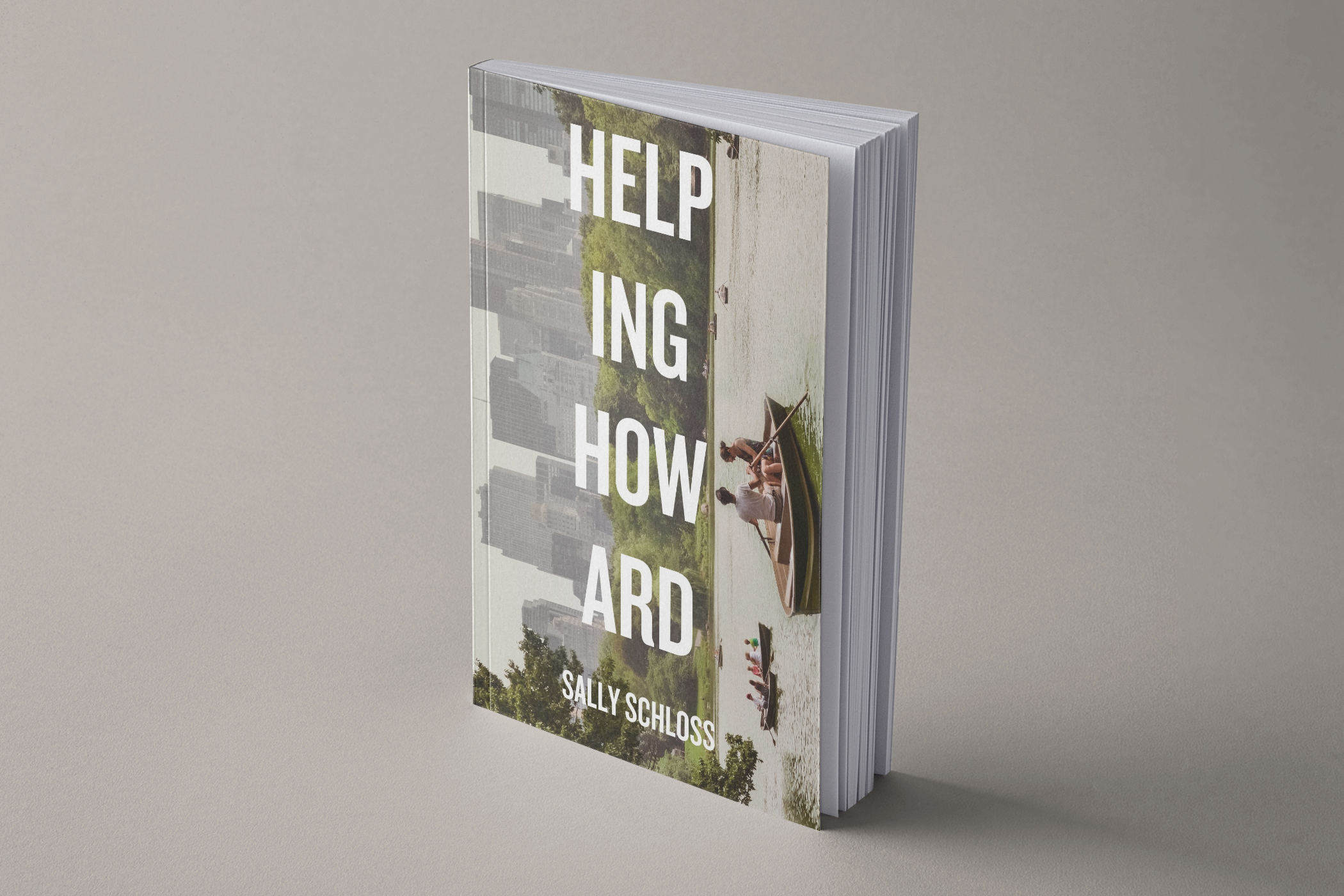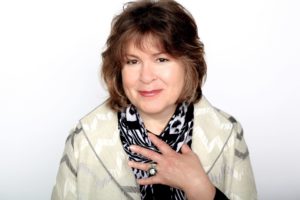
“Helping Howard,” an Anti-Romance Romance
An anti-romantic romance, Helping Howard (Atmosphere Press, $16.99) tells the tale of The Author who awakens Howard into consciousness in order to become her accomplice in figuring out what happens next.
Their ongoing dialogue—by turns playful, provocative and probing—pushes the story forward. Playing with, and exposing, the creative process adds another dimension to the narrative as The Author creates a relationship with her main character, which in turn, reflects on who she is. Fiction Editor Yona Zeldis McDonough talks to author Sally Schloss about her one-of-a-kind debut.
YZM: Howard’s mother is a fierce and interesting character.
SS: Howard’s mother is, in part, psychologically based on my own mother and her ambivalence about being a mother, and on the other mothers I grew up around. The latter part of my childhood (late 1950s to late 1960s) was spent in an upper-middle-class suburban neighborhood in the hinterlands of Brooklyn. I observed how all these smart, funny, educated Jewish women, married to doctors and lawyers and dentists, were trapped in their dual roles of wives and mothers. It was considered déclassé for women to work and quite unnecessary, since their husbands were such good providers.
In the afternoons, while husbands were at work, my mother’s friends would sit around our kitchen table, smoke, have tea, and complain about their children and husbands. It’s not that these women didn’t love their children and perhaps their husbands; it was that they felt exiled and trapped. Manhattan was an hour and a half away, and their existence was much like the marginalized mothers on TV family sitcoms. We lived next door to a beautiful, irreverent, smart-mouthed woman who periodically attempted suicide. My mother saved her life. And then the beat went on.

Unlike Howard’s mother, my mother was not fierce or cold. She was warm and affectionate by nature; however, she was often depressed and let us know how burdened she felt by her family life. In the great Jewish tradition of using humor as a response to pain, she used the material of her everyday life to make others laugh. It was an act that brought her attention and relief.
I took that entirely away from Howard’s mother. She was shut down and turned her disappointment into an ice-covered heart. Howard didn’t know his mother loved him because he never received her acceptance and attention. I was interested in exploring the consequences in his life of the damage caused by that lack of attachment. It certainly was an unconscious prime mover in his relationship with his wife, T.J.
YZM: How has your own Jewish upbringing influenced your sensibility?
SS: My Jewish upbringing has completely influenced my worldview—and that worldview is very much in evidence in Helping Howard. My parents were first-generation Jews, and the legacies of immigrant flight and hardship, persecution and displacement, made my parents completely sympathetic to the plight of the underdog. In the 1930s, as young people they were part of the Jewish intellectual culture that flourished in NYC and embraced the idealism of socialism and communism. Like those who have had their hearts broken and their beliefs shattered—as they learned how communism was perverted into totalitarianism—their mistrust of political ideologies became something that my brother and I absorbed, along with sympathy toward the poor, the marginalized, and society’s pariahs.
Howard’s conflicted point of view about how to be a good person, what his moral compass is, how he is complicit in his own needs not getting met is acted out in his relationships with his wife T.J. and with his daughter, Sinclair. I have huge sympathy for Howard, who is my underdog. His worldview is Jewish and compulsively analytical, which is another characteristic of how I was raised.
Finally, the conceit of the novel, that makes it unique, is that the author and Howard are collaborators in telling the story of Howard’s marriage. The dialogue is reflective of the kind of humor and constant questioning about life that I also see as characteristically Jewish. We are people that examine and seek understanding because so little of what happens in the world, and that has happened to Jews, makes sense. Telling a story to create understanding and weaving in humor to leaven the pain, as well as Howard’s “wandering in the desert” seeking answers, is for me, very much part of a Jewish tradition.
YZM: This is a debut novel that’s being published when you are in your seventies. Thoughts about coming onto the literary scene at this age?
SS: I feel like I am publishing in a world that is not mine. The rules, the culture, the technology have evolved so much that I scramble to make sense of how I fit in and to be heard. I am white, in my 70s, and a straight woman writing psychologically driven fiction about a lifetime marriage between a gay woman and a straight man. Being gay and being black, in the context of simply being human, are very much part of its story. A feminist perspective is deeply entrenched in its sympathies and point of view. And yet this is not a political novel. At the deepest level it’s a novel about love and connection. This doesn’t go out of fashion. But my novel is hard to place. It doesn’t fall into a neat genre. The space in the market is large and crowded.
There are somewhere between 600,000 and 1,000,000 books published every year in the U.S. alone. This was not true before. So to be emerging during my 70s has novelty on the plus side and the unprecedented challenges. But–and this is an important but–I couldn’t have written this book when I was younger. It is informed by a lifetime of experience, of observing and thinking about the human condition, and capturing it through the personal, human story of a handful of people that I hope are relatable. They may not always be likable, but I have enormous sympathy for them.
YZM: What’s next on your horizon?
SS: I have a finished novel waiting in the wings, a collection of short stories, a YA series in progress and new fiction I’m working on. Helping Howard is my debut novel, but I’ve been writing all my life. And the clock is ticking.



